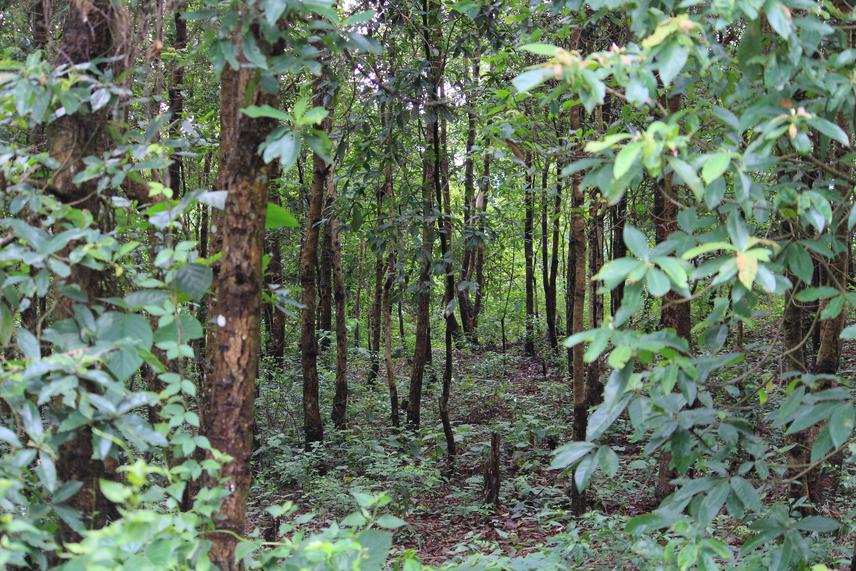Phurpa Wangdi
To manage forest sustainably for socio-economic benefit and maintain ecological resilience following the ‘ecosystem services approach’.

Planted timber species.
The evaluation on ecosystem services is recognized tool for sustainable management of forest for socio-economic benefits and ecological resilience. Bhutan with 72.4% of forests cover and 70% marginalized rural people calls to materialize the issues on poverty and conservation following the principle of ‘Ecosystem Services Approach’.
Community forestry in Bhutan provides opportunities to rural people and remains as major influence to the development of forest policies. However, it is only known fact of community forestry contributing towards socio-economic and environmental benefits without quantifiable measurement of ecosystem services. Mainstreaming the information of ecosystem services into policy and decision making is explicitly dependent on holistic investigation of ecosystem. This project will investigate the ecosystem services of community forest to derive information on ecology, economic and social perspective using different methodologies.
The project will be carried out in 12 community forests and 16 villages of Sarpang district. Vegetation analysis will be done following the standard method given by Curtis & McIntosh (1950) for the quantitative forest resource assessment and habitat mapping based on ecological characters. ‘Velocity Area Method’ will be used to calculate the volume of water discharge to forecast water sufficiency. Questionnaire surveys on priority ranking of Non Timber Forest Products will be done to obtain consolidated scoring for the raking to represent order of priority. Economic valuation of market values will be conducted by following environmental framework given by de Groot et al. (2002) and for non-consumptive use values the methodology developed by Sheil et al. (2002) will be used.
The precise information on socio-economic and ecology will be generated by doing research triangulation of different data obtained from different methodologies. The project will then recommend ‘Ecosystem Services Approach’ for conservation and livelihood improvements.